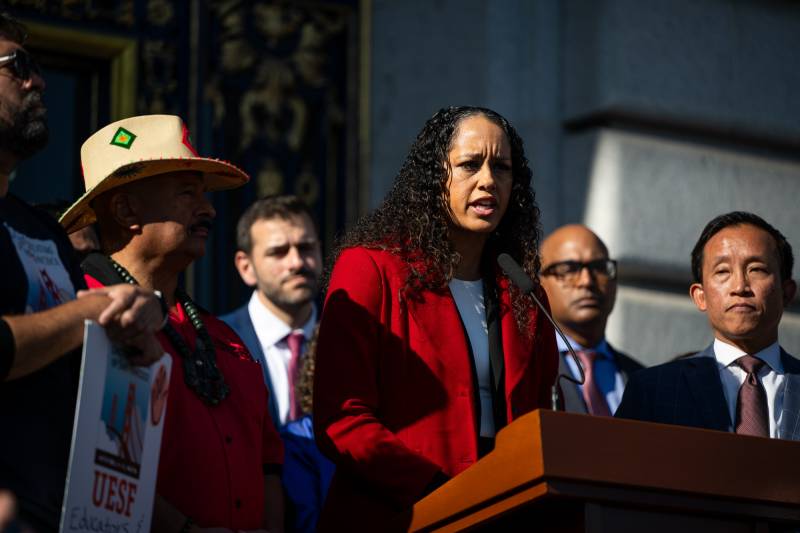“If you have a violent criminal felon in your custody and the federal agencies call and ask about them, now you just have to say what’s going on and what the status is,” Jones said. “It’s not requiring felons to be turned over to ICE. It’s just requiring the communication between the local agencies and the federal agencies.”
Angela Chan, who helped write the state law as an immigrant advocate, disagreed. Now an assistant chief attorney at the San Francisco Public Defender’s office, Chan said the provision allowing law enforcement to provide ICE with someone’s release date would effectively “gut” the state law and would result in the broader undocumented community being targeted by ICE agents.
“It would make people extremely afraid of visiting loved ones in local jails,” she said.
The proposed law would also prohibit local agencies from having policies that go farther than the state law. That would override stricter local policies in counties like San Francisco and Jones’ home county of San Diego, which both have a narrower list than the state’s 800 crimes for when law enforcement can cooperate with immigration officials.
“This bill is not viable,” Chan said of Jones’ bill, noting that Republican lawmakers have made similar proposals in the past.
She called the bill a “desperate attempt to get attention. It’s about fear-mongering and scapegoating immigrants.”
“There’s no way this legislature goes for this,” she added.
Jones disagreed and said the politics around criminal justice and public safety have shifted in California. He noted the passage of Proposition 36 in November, which rolled back some criminal justice reforms, and said “sensible” Democrats are “‘looking for common sense, middle-of-the-road reforms that we can work on together.”
“And they’re looking at this as possibly one of those avenues to be able to do that,” he said.
Feb. 21, 12:25 p.m.: A previous version of this story said Jones’ proposal would erase exceptions and allow law enforcement to provide ICE with the release date of any immigrant, no matter what crime they were convicted of. It does not remove the exceptions but requires such notification for immigrants convicted of one of 800 specific crimes.


